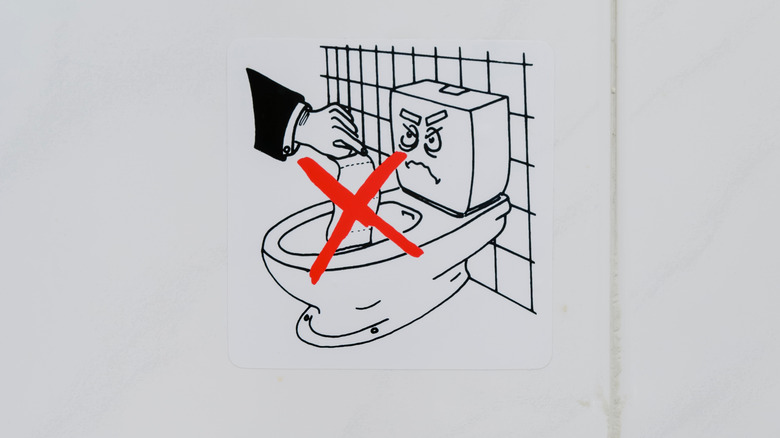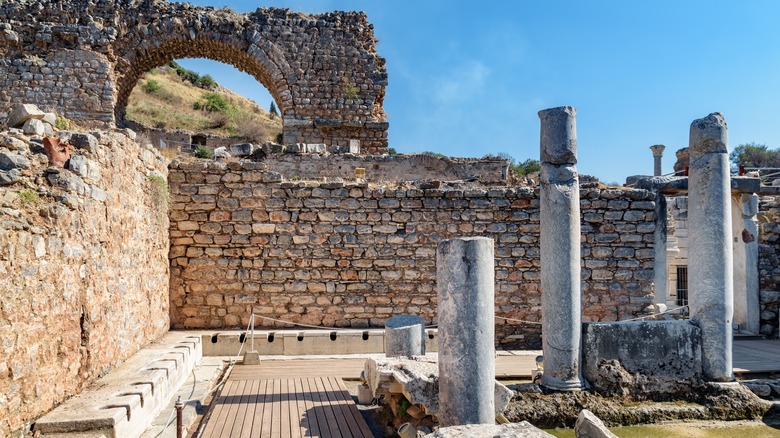Travel Guides International Travel Etiquette
Matt Berry
When you think of Greece, you probably think of Corfu’s powder-white beaches, Santorini’s whitewashed villages, or the Acropolis of Athens. And for good reason. Greece’s picturesque beaches, enchanting villages, and wealth of historical sites are all fantastic reasons to visit and explore the country.
According to the United Nations Educational, Scientific and Cultural Organization (UNESCO), Greece is home to 18 UNESCO World Heritage Sites. Often referred to as the Cradle of Western Civilization, Greece is a must-visit for world history buffs. The country has welcomed visitors from around the world for millennia.
However, visitors must appreciate Greece’s historical charm and unique geography in two ways. One, yes, these characteristics are excellent reasons to visit. But two, the historical and largely island makeup of Greece requires an appreciation for the country’s limitations.
Namely, we’re speaking about its sewer system. The system is, well, very limited, and you (as an informed, polite guest to another country) should understand a few tips on Greece’s toil-etiquette.
Don’t flush your toilet paper

Stephen Barnes/Shutterstock
According to World Nomads, you can’t flush toilet paper for one pretty uncomplicated reason — the pipes are just too thin. In the United States and the United Kingdom, the average pipes of the sewage system are about four inches in diameter. In Greece, they’re approximately half the size with a two-inch diameter.
If you flush toilet paper or other hygiene products in Greece, you’ll run the risk of clogging or breaking the pipes. A good (and less graphic) metaphor would be Greece’s roads. While some roads may be able to handle a full-size automobile, it’s more common for visitors to explore by compact car, 4×4 quad, or Vespa, especially on the islands. Some of Greece’s pathways aren’t exactly designed for the influx of modern travel, much like their sewer system.
In Greece, you’ll almost always place soiled toilet paper into a toilet-side trash bin. Typically, these trashcans can be operated by foot, and the lids tightly shut, making the process more pleasant. To ensure hotel guests, restaurant patrons, and shop visitors aren’t put off, these toilet bins are generally changed pretty often.
Don’t freak out about it

Efired/Shutterstock
While there may be exceptions in some newly built resorts and modern hotels, the overwhelmingly common rule is to avoid flushing paper products down the toilets in Greece. And don’t worry about forgetting. You’ll come across plenty of fun signage to remind you.
If you’ve traveled enough, the toilet flushing rule may be nothing new. According to Brilliant Maps, flushing toilet paper isn’t exactly common in many places. If you’ve visited Central or South America, Eastern Europe, or a lot of Asia, then you’ve probably come across non-flushing regions or establishments. And if you’ve never experienced a “non-flushing country,” it really takes one day to get used to it. After, the process becomes second nature.
Also, in all fairness, we should mention that the ancient Minions of Crete are largely credited with inventing the flushing toilet, per Nature. During the Hellenistic era, ancient Greeks then created public bathrooms and began placing toilets inside common, middle-class homes. So, let’s be considerate of Greece and its toilet flushing practices.

